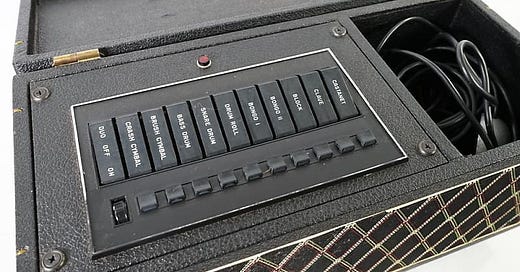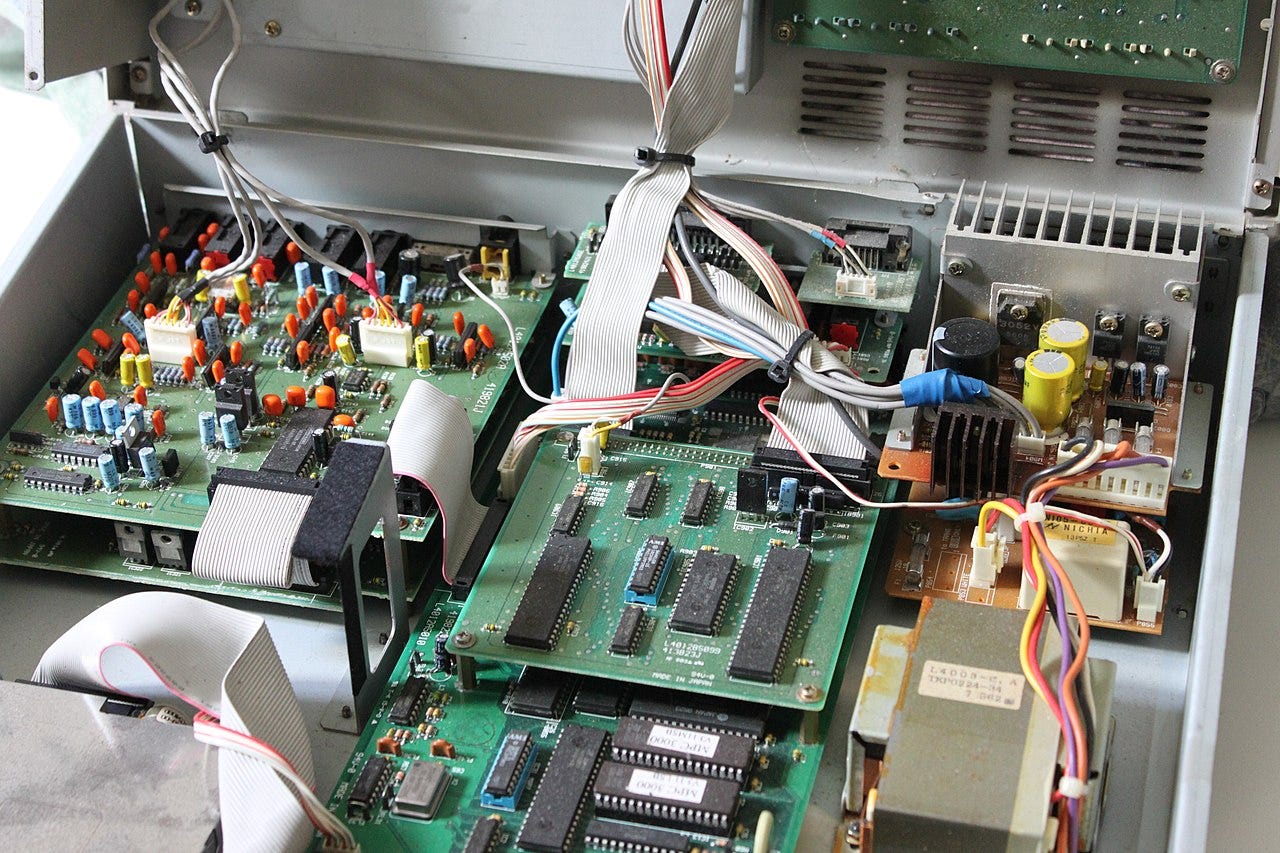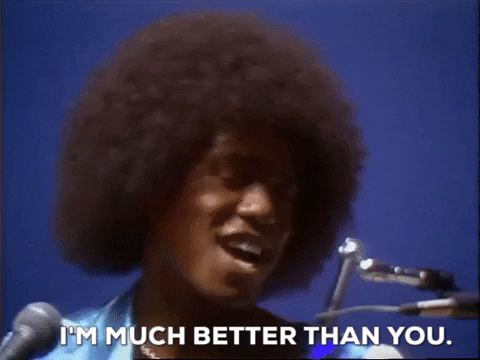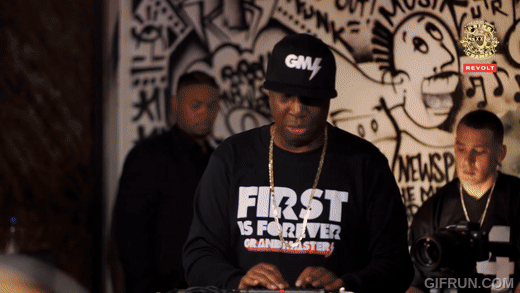The ACTUAL Drum Machine That Transformed Music
often the MPC is touted as the best thing to hit music since the turntable, however, i'd like to place a little bit of shine on a very unknown piece of gear.
What’s up forum,
I love watching some of the elder statesmen in hip-hop reveal their secrets and share their knowledge.
Less than 24 hours ago, another iconic interview was released online.
Some of us may be familiar with Grandmaster Flash, but for those who are not acclimated to the annals of hip-hop let me share a teeny bit of its history here:
Grandmaster Flash was a DJ of Barbadian descent hailing from the Throggs neck projects in South Bronx New York City. Using two turntables, he perfected breakbeat looping, a concept in which two turntables were used to ‘loop’ the isolated drum section of a record.
A few years prior, DJ Cool Herc invented the concept of looping With his refusal to play disco music. DJ Cool Herc would only loop the drum and bass parts of the record or the breakdowns essentially creating a party groove that dancers could get down to. Grandmaster Flash improved on the concept by looping the drum section of different records and making the transition almost seamless. Breakbeats would eventually become the backbone and the origin of what we know as hip-hop music. But back then, this was only a means of staying competitive and keeping the party going.
During his time as a party DJ Grandmaster Flash would walk by the Jackson Housing Projects and hear synthetic drum rhythms played by one of the residents. This individual he heard playing was a drummer using this specific device to practice his rhythms. Offering to purchase the device, Grandmaster Flash waited until the timing was right and finally received the guy's offer.
Being that DJing was extremely competitive, DJs would often find ways of keeping their competitive edge by finding seemingly obscure records to have a unique sound when playing at parties. As one could assume, finding these records took time, patience, and a bit of innovation for DJs to conceal their secrets from rivals. Simply due to the drive to compete and have a unique sound, DJ Grandmaster Flash would keep the rhythm going with his own special technique.
After a while of playing records, he would hop off the turntables and start jamming on his ‘beatbox’ or this:
or more accurately the Vox V829 Percussion King.
hip hop wasn’t built on samples, rather synthesis…
…and an ingenious usage of such in the form of artistry. Today we wrap ourselves up in the nonsensical conversation of what ‘gear’ or 'converters’ we use rather than our creative usage of sound, sonics, and the drive to innovate using what we have.
Unlike today’s sample-based drum machines, this unit synthesized the drum sounds using analog circuitry. Featuring ten ‘out of sight percussion effects’ the unit was an adaptation of the percussion circuit designed for Thomas's home organ line.
featuring very similar layouts and buttons, you can tell where devices like the E-mu Systems SP-12 may have gotten their inspiration from.
You can watch him jamming on it here: (1:12:17 mark)
Eventually rappers, then known as emcees’ would follow in the steps of DJ Hollywood and start rhyming over these ‘programmed’ beats.
Now there are a few things to note from the start.
Grandmaster Flash infused his set with the rhythms of Africa right from the beginning. If you listen, most of the patterns he played on this iconic machine were actually of African origin. You can hear the Bell pattern, tresillo pattern, and the clav pattern through his playing. If you’re paying closer attention, you can detect the 12/8 pattern in a few of his freestyles.
Secondly, this simple idea of creating a rhythm and someone rhyming over it isn’t new, however, this brought music purely into the ‘digital’ or synthetic age. Even though they weren’t highly commercially available, Essentially, any DJ could now grab a drum machine and a charismatic street lyricist and create music that could rock a crowd.
But a drum synth cannot do it all on its own
It’s important to also note that drum machines like the Vox v829 Percussion King did not have a click or rhythm engine inside, so everything was unquantized and ‘free’.
Today, we call it the MPC swing, and somehow we seem to get caught up on which version of the drum computer is ‘better’ for making tracks. I find myself listening to more electronic, Afro-punk, and Indie music nowadays however, my home is always going to be hip hop.
I think the true essence of what we love in hip-hop will always be centered around the rhythm, the bass, the rhyme, and of course, the operator.
Not too many people know about this obscure machine called the Vox V829 Percussion King. But what they did know, is that Grandmaster Flash knew how to keep the party rocking.
I believe that the ideology that the artist creates the vibe can be applied to today’s music as well. Musicians have always been viewed as magical or otherworldly. Especially fast-forwarding into the synthesizer/MIDI era. Nobody knew what secret machines these guys were using to craft their sounds. Especially when they went through meticulous methods to conceal their secrets.
Grandmaster Flash created an entirely new front casing for his Vox ‘Beatbox’. A practice he probably adopted from replacing the vinyl record label with a false sticker. According to Flash, the box was in a bank safe for almost 30 years he’s still never revealed the name of the machine. He states that ‘only Sly And The Family Stone and The Beatles were the only ones he’s seen use the machine. Though he may be right in saying that he has never personally seen another one, these were produced by a fairly reputable company. They just didn’t sell well..
Which brings me to my final point.
Converters 😱🤯🙄
in no way am I trying to discredit the hip-hop OG when I say this, but musicians want to keep their secrets because we all know essentially that once the cat is out of the bag, another , more talented Joe Schmoe can come and do something similar. Once we show our trick, we believe that we are no longer special.
And that kindof lands us here, at the ‘converters’, debate. DJ Grandmaster Flash’s audience didn’t care what ‘converters’ or transistors his system was using. All they cared about was that the bass was thumping and the beat was rocking. Now some DJ nerd in the crowd was probably scratching his head to figure out the sauce, but the general public appreciated the art for what it was, not the techniques or the gear, or the ‘converters’.
Producers are the ones that get caught up in the ‘exclusivity’ or the ‘I’m more special than you debate’, essentially resulting in back and forth bout which gear has this sound or which gear is better. Or modifying gear to make it work differently than other people. All of that talk does require a bit of technical finesse and honestly is a bit exclusionary at its core.
During the late '70s to the early 2000s, there was a culture among certain artists to have access to the most modern and up-to-date equipment to achieve a particular sound. This led to a preference for working with producers who possessed the 'cool gear' necessary to create that sound. However, Grandmaster Flash, a pioneer in the hip-hop genre, created his unique sound on a relatively obscure piece of equipment. With the popularization of home-based software and studio setups, the emphasis on having the latest gear somewhat diminished.
It’s only the dinosaurs of yesteryear that still want to maintain that gatekeeping style of exclusivity when it comes to music. These guys proclaim that the gear isn’t the same, the musician the same, and whoever is using the ‘new’ isn’t staying true and shouldn’t be trusted. however, countless musicians like Grandmaster Flash have shown and proved that that is utter nonsense.
Navie D goes into explaining it better than I could ever here
What audiences crave is a dope artist, creating dope stuff.
I think this (and Clyde Stubblefield) is part of why THAT sound, the sound of great art, is always going to be quintessentially hip-hop. It’s not the sound of any device per se. We’ve grown to love the sound of a funky player, jamming the same rhythm to someone kicking some fresh and funky raps over that beat.
Not just the sound of the converters that the machine used due to technical limitations of the era.
SoFor all the creative individuals out there, including home producers, beatmakers, sample makers, and DJs, enjoy the process of creating. Embrace the limitations of your equipment and strive for innovation. Even though vintage gear like the MPC 3000 converters or Vox V829 Percussion King may produce unique and amazing sounds, you don't need them to create great tracks. However, it would be nice to have them as additional tools in your arsenal."
SOVL ❤️
References:










